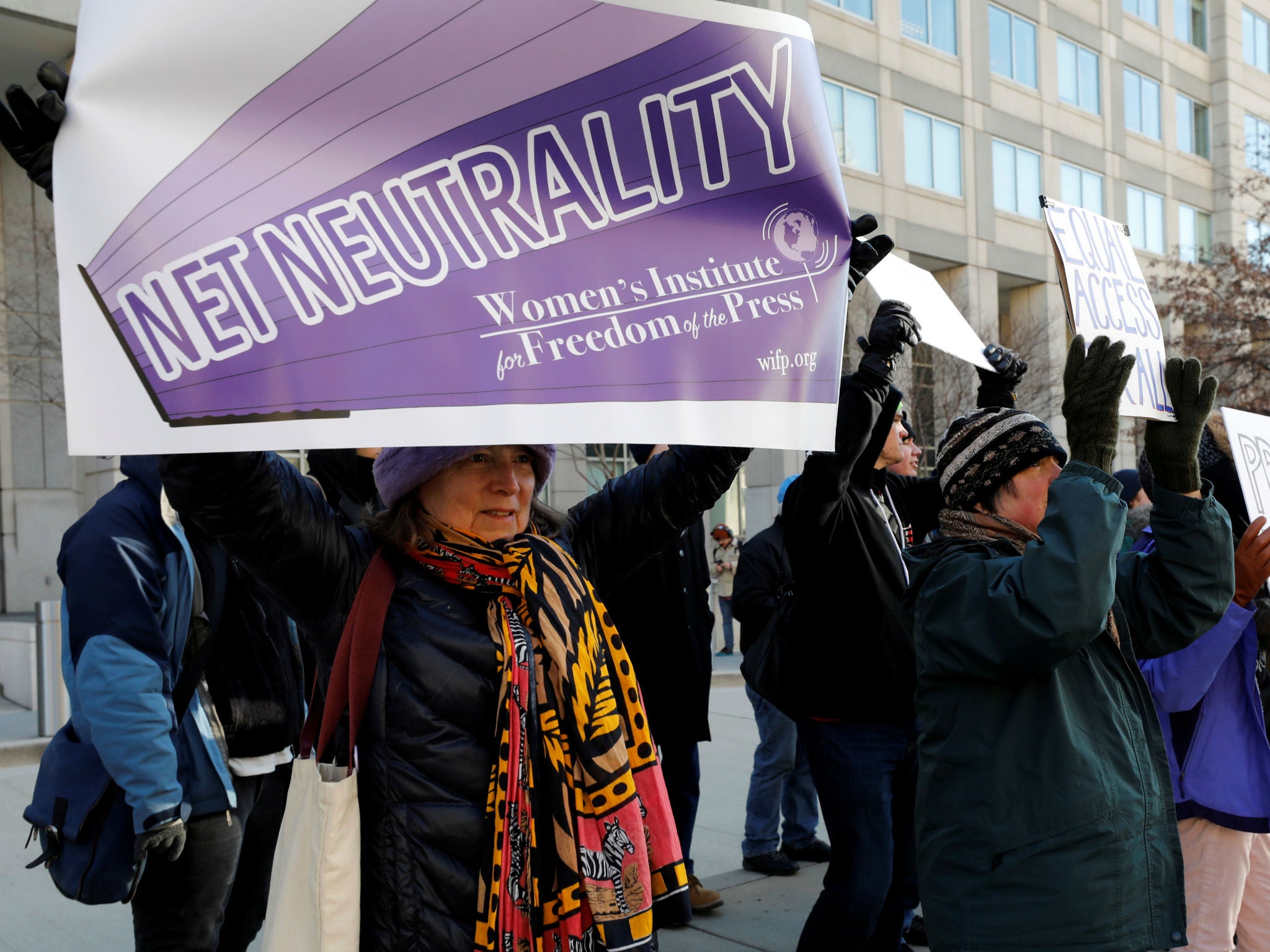Net neutrality: Latest ruling stops internet companies challenge against protections for free and open internet
Donald Trump has fought against tech companies who claim the judgements enshrine an important part of the internet

Your support helps us to tell the story
From reproductive rights to climate change to Big Tech, The Independent is on the ground when the story is developing. Whether it's investigating the financials of Elon Musk's pro-Trump PAC or producing our latest documentary, 'The A Word', which shines a light on the American women fighting for reproductive rights, we know how important it is to parse out the facts from the messaging.
At such a critical moment in US history, we need reporters on the ground. Your donation allows us to keep sending journalists to speak to both sides of the story.
The Independent is trusted by Americans across the entire political spectrum. And unlike many other quality news outlets, we choose not to lock Americans out of our reporting and analysis with paywalls. We believe quality journalism should be available to everyone, paid for by those who can afford it.
Your support makes all the difference.A legal fight over net neutrality has come to an end, with the US Supreme Court refusing to hear an argument over the future of the internet.
The ongoing dispute over the 2016 court ruling, which upheld Obama-era regulations that protected a free and open internet, came to a close with the court refusing to hear it.
That means the broadband industry's attempt to overturn those protections – which ensure that people can't be blocked from using their favourite apps and services – come to an end, and the net neutrality rules will stay in place.
The Trump administration and internet service providers had asked to justices to wipe away the ruling by the U.S. Court of Appeals for the District of Columbia Circuit that had temporarily preserved the net neutrality regulations championed by Democratic former President Barack Obama. But the justices refused to hear the appeals, leaving the lower court ruling in place.
The brief court order noted that three of the court's conservative justices, Clarence Thomas, Samuel Alito and Neil Gorsuch, would have thrown out the appeals court decision. Chief Justice John Roberts and new Trump appointee Brett Kavanaugh were both recused from the case.
The Republican-controlled Federal Communications Commission voted 3-2 in December along party lines to reverse the rules adopted under Obama in 2015 that had barred internet service providers from blocking or throttling traffic, or offering paid fast lanes, also known as paid prioritization.
Obama's rules, intended to safeguard equal access to content on the internet, were opposed by Trump, a Republican.
The new FCC rules went into effect in June. They give internet service providers greater power to regulate the content that customers access, are now the subject of a separate legal fight after being challenged by many of the groups that backed net neutrality.
The Justice Department has also filed suit to block California's state net neutrality law from taking effect in January.
The net neutrality repeal was a win for providers like Comcast Corp, AT&T Inc and Verizon Communications Inc. It was opposed by internet companies like Facebook Inc, Amazon.com Inc and Alphabet Inc, which have said the repeal could lead to higher costs.
Additional reporting by Reuters
Join our commenting forum
Join thought-provoking conversations, follow other Independent readers and see their replies
Comments